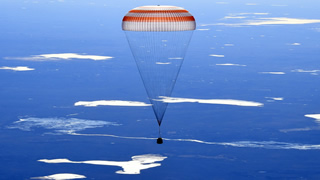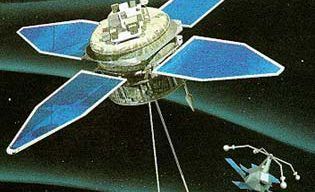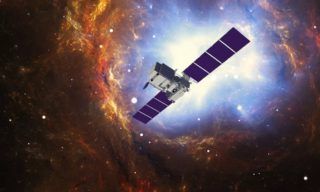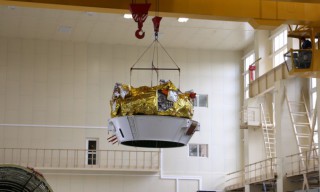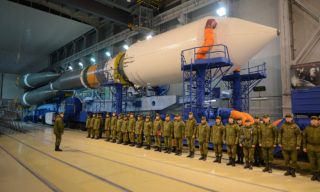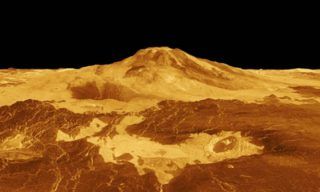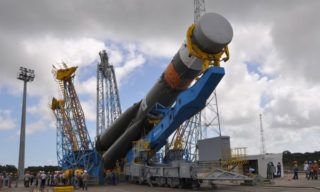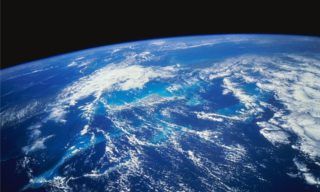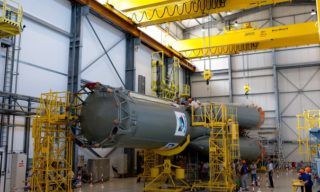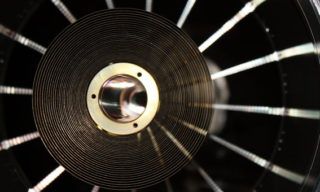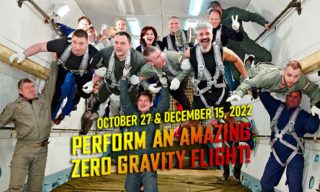-
This error message is only visible to WordPress admins
Error: API requests are being delayed. New posts will not be retrieved.
There may be an issue with the Instagram access token that you are using. Your server might also be unable to connect to Instagram at this time.
Error: API requests are being delayed for this account. New posts will not be retrieved.
There may be an issue with the Instagram access token that you are using. Your server might also be unable to connect to Instagram at this time.
Categories
- Academy of Science (20)
- Alexey Leonov (10)
- Android (4)
- Angara (41)
- Asteroid (7)
- Astronomy (8)
- ATV (12)
- Baikonur spaceport (511)
- BION-M (1)
- Brazil (1)
- Buran (2)
- Challenge (5)
- COSPAR (3)
- CrewDragon (2)
- CubeSat (1)
- Cygnus (4)
- Defenсe (47)
- Dnepr (6)
- Dragon (2)
- Earth (11)
- Electro-L (1)
- Energomash (1)
- ESA (116)
- ExoMars (10)
- Express-AM (28)
- Falcon (2)
- Featured article (10)
- Fregat (33)
- GCTC (209)
- Glonass (33)
- Google X Prize (1)
- History (58)
- HTV (1)
- IBMP (6)
- India (1)
- Inmarsat (11)
- Institute of Biomedical problems (2)
- ISS (526)
- JAXA (49)
- Johnson Space Center (3)
- Kapustin Yar (2)
- Khrunichev (63)
- Kourou spaceport (15)
- Kurchatov institute (1)
- Kuznetsov (2)
- Lavochkin (12)
- MAKS (4)
- MAKS 2021 (1)
- Mars (7)
- Mars Desert Research Station (1)
- MCC (84)
- Moon (18)
- NASA (197)
- Nauka module (7)
- NK-33 (2)
- Nuclear battery (2)
- Oka-T (1)
- Olympic torch (13)
- OneWeb (7)
- Orbital Sciences Corporation (3)
- Plesetsk spaceport (82)
- Progress (226)
- Proton (137)
- Reshetnev (13)
- Resource-P (4)
- Rokot (15)
- Rosatom (2)
- Roscosmos (621)
- RSC Energia (93)
- Russia (698)
- Satellites (218)
- Science (129)
- SIRIUS (2)
- Soyuz (542)
- Soyuz-2.1b (1)
- Space (463)
- Spacewalk (72)
- SpaceX (3)
- Star city (60)
- Sygnus (2)
- Tereshkova (6)
- Tourism (27)
- TSNIIMASH (4)
- URSC (1)
- USA (62)
- Valentina Tereshkova (4)
- Valeri Kubasov (2)
- Voskhod (2)
- Vostochny spaceport (62)
- Voyevoda (2)
- Yasny launch base (2)
- Zenit (3)
- Zero Gravity (12)
- Zvezda Enterprise (3)
Category : Lavochkin
August 4, 2020
25 years ago, on August 3, 1995, the implementation of the international scientific project "Interball" began. It was on this day that the launch of the first Interball-1 apparatus, developed and manufactured at NPO Lavochkin (today it is part of the State Corporation Roscosmos), took place. In fact, the satellite was a modernized version of the Prognoz series spacecraft (1972-1995), that is, while maintaining the structural and layout scheme, a number of onboard systems were replaced on the Interbol spacecraft in order to increase their resource, and improvements were made to significantly reduce electromagnetic and electrostatic interference.
full storyJuly 10, 2020
Gamma-400 astrophysical space observatory designed to study gamma-ray sources in the Universe is to be launched by Angara booster from Vostochny launchsite. Gamma-400 observatory is designed to study the nature of dark matter in the Universe, to develop high-energy cosmic rays origin theory and elementary particle physics, to explore cosmic gamma-rays within high-energy and X-rays range as well as to track cosmic rays charged particles and gamma-ray bursts.
full storySeptember 20, 2019
From the territory of the Lavochkin NPO (part of Roscosmos State Corporation) 3 containers were dispatched with "Fregat-M" upper stages.
full storyJune 18, 2018
On June 17, 2018 at 00:46 (Moscow time) from the State Test Cosmodrome “Plesetsk” military crew of the Russian Space Forces launched a space rocket , that include a “Soyuz-2.1b” launch vehicle, the “Fregat” booster block and “Glonass-M” Russian navigation spacecraft. The launch was conducted under the general supervision of the commander of the Space Forces, the deputy commander-in-chief of the Air and Space Forces, Colonel- General Alexander Golovko. The launch of the launch vehicle and the launch of the spacecraft into the calculated orbit were held in the regular mode.
full storyFebruary 4, 2015
New Russian space observatory Millimetron is to be sent to the orbit in 2025. This unit will help gathering information on Universe processes, learn what happens inside black holes, and provide new data on dark matter origin that is supposed to be responsible for universe expansion, - Roscosmos reports.
full storyJanuary 22, 2015
Russian automated station Venera-D initially planned to be launched in 2016 will be sent to space in 2025, - as stated in the theses by Lavochkin Research and Production Association who is the designer of this space device.
full storyDecember 4, 2014
Preparations for the launch of Soyuz-ST-B booster with Fregat-MT upper stage and O3b space devices are under way in Guiana Space Centre (French Guiana).
full storyAugust 11, 2014
The launch of four Rezonans satellites aimed at Earth’s radiation belt exploration is planned for 2017-2018, - Doctor of Physical and Mathematical Sciences Anatoly Petrukovich working for the Institute of Space Explorations of Russian Academy of Sciences reported at COSPAR conference held in Moscow.
full storyAugust 8, 2014
Russian specialists continue preparing Soyuz-ST-b booster with Fregat-MT upper stage and two European space devices Galileo FOC for the launch from Guiana Space Centre (French Guiana).
full storyApril 22, 2014
The launch of Russian-German SPACE observatory designed to study black holes, galactic clusters and dark matter was shifted to 2017 since German specialists fail to prepare the telescope in time, - Roscosmos press-office reports.
full storyPages :

